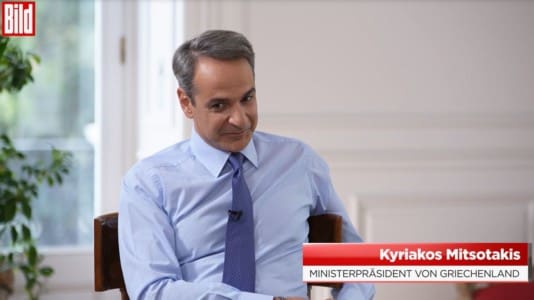It is shocking that, with the support of the U.S. embassy in Budapest, billboards appeared on the streets of Hungary with the inscription nostalgic of the 1956 Hungarian uprising against Soviet-imposed communism: Ruszkik haza! (Russians, go home!) All this, as if the Hungarian public opinion is in unison with what the Ukrainians are chanting to the Russians in Kyiv.
But the Hungarians are not in unison with Ukraine. We are in favor of an immediate ceasefire and subsequent peace negotiations. If only so that no more blood flows and there are no more victims of this terrible war.
Whoever demands that today, moreover, in the name of the Hungarians, is saying the exact opposite. Calls for Russians to go home or be driven out don’t stand up to reality. The last 14 months have shown that the Ukrainians have not been able to beat the Russians; at best they try again and again, and fail miserably again and again. Therefore, those who today cry out “Ruszkik haza!” are not on the side of peace, but of war. And this war is primarily in the interest of the United States, to boost the military-industrial complex by selling an inordinate amount of weapons, and to create – with the European Union, which maintains an extremely close alliance with it – a market for extremely expensive American gas in Europe. This worsens the competitiveness of the European economy, making nation-states, including Hungary, more vulnerable. Our Western “allies” are doing everything to drag our country into the war.
If Hungarian Prime Minister Viktor Orbán were to join the ranks of arms suppliers and EU countries in favor of sanctions, if he voted yes to the senseless killing, then the U.S. ambassador in Budapest, David Pressman, would have no problem with Hungary.
But, unfortunately, there is a problem with the ambassador. And despite the fact that, for example, an international treaty states that a foreign ambassador can only negotiate with, for example, the people of the judiciary through the mediation of the Ministry of Foreign Affairs, he rudely interferes in Hungary’s internal affairs. Pressman recently negotiated directly with judges who are members of the National Judicial Council and have previously become known for their pro-opposition sympathies.
The posturing is particularly repulsive. The United States can refer to 1956, when they treated the Hungarians like total fools. The American-funded Radio Free Europe regularly encouraged the Hungarian resistance fighters to hold out against the invading Soviet troops because help would soon come. Of course, it didn’t come. In fact, Eisenhower, who was preparing for the elections, assured Khrushchev that the United States would not act on behalf of Hungary. In other words, the Soviets do what they see fit in Hungary. Only this is what they forgot to tie on our noses. The audacity of the American government is incredible.
Then, Pressman comes and announces the big nothing at a press conference. In advance, the left-wing serial-dollar media (444, HVG) wrote that even high-ranking Hungarian politicians could be banned from the United States. In comparison, one of the Hungarian officials of the International Investment Bank, Imré Laszlóczki, was banned. So what?
Viktor Orbán already predicted in his annual evaluation in February that the intention of U.S. Ambassador Pressman is to drag Hungary into the war.
Hungarian cabinet minister, Gergely Gulyás, recently stated that the government will not change its position, even under American pressure. Hungary is allied and friendly with the United States, and so the poster campaign calling for Russians to go home, which is supported by the U.S. embassy, is an unusual step. Until now, it was not usual for Hungary to run a poster campaign in America, and this is not the case for the United States either. Gulyás called it unfortunate to do this in an environment when organizations openly connected to the democratic administration invested considerable money in the campaign of the Hungarian opposition in the 2022 elections, which, according to him, further strengthens the intention to interfere in Hungarian domestic politics, and which the minister does not consider correct.
Gergely Gulyás added: “In America, laws with much stricter consequences prohibit this behavior than in our country. It’s time to catch up.”
In Hungary, 80 percent of the population is on the side of peace. This is why they condemn the war and support the pro-peace position promoted by Viktor Orbán wholeheartedly.





